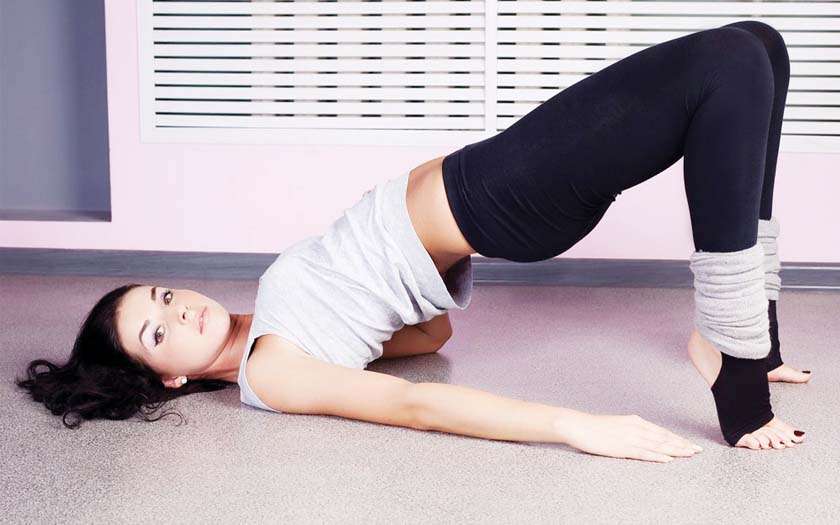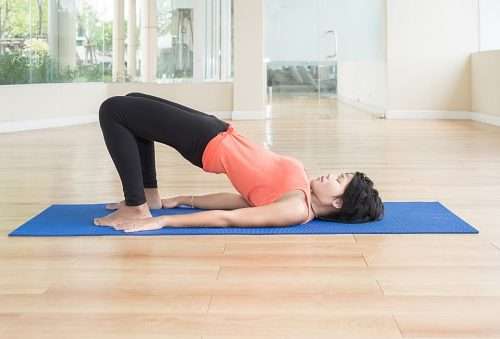Hot And Cold Compresses
Another simple and effective treatment is applying a hot compress to your bladder. This can reduce bladder swellingâa common interstitial cystitis symptom.
Your doctor may also recommend the combination of cold and hot packs on your abdomen to provide relief from pain and inflammation. But a hot compress is used specifically to reduce muscle spasms.
For this, wrap a thin cloth around a hot water bag, and apply it to your pelvic floor muscles for a five-minute period. After a five-minute break, reapply the hot water bag for another five minutes.
Repeat this two or three times per day, or whenever you feel pain around your pelvic floor or bladder.
Natural Supplements You Can Take At Home
While there have been very few scientific studies on herbal remedies as an option for overactive bladder treatment, some remedies have shown promising results for some people.
Studies from Japan have shown improvements in urgency, leakage and a reduction in night-time urination using a herbal remedy known as Gosha-jinki-gan. Also, the buchu plant from South Africa is thought to nourish the bladder tissue and fights inflammation which can lead to infections and incontinence.
There are also plenty of common herbs that may help with symptoms, including:
- Corn silk
- Capsaicin
- Ganoderma lucidum
Remember to consult your doctor first before adding any of these herbal remedies into your overactive bladder management plan.
Top 20 Natural Home Remedies For Overactive Bladder
1. Pumpkin Seeds
This is the first home remedy for overactive bladder for you to do at home. Pumpkin seeds contain tryptophan, insoluble fatty acids, and high levels of antioxidants, which provide many benefits to the body. Thanks to the high levels of carotenoids and liposolunols, pumpkin seed oil is considered as an ingredient to help prevent diseases, especially prostatic disease.
In addition, scientists have demonstrated its effectiveness in treating diabetes, anxiety and overactive bladder. A study published in the Journal of Traditional and Complementary Medicine found that pumpkin seed helped improve urinary symptoms in study participants after 12 weeks of supplementation. Pumpkin seeds contain a lot of fatty acids and phytoesterol which are essential for the bladder, especially for women after menopause.
Method 1: Only Pumpkin Seed
To implement this method, please follow these steps below:
- Prepare 10 grams pumpkin seeds.
- Rinse the pumpkin seeds, then roast for 3 minutes so that the pumpkin seeds ripen.
- Peel pumpkin seeds and eat during the day when you feel hungry.
Method 2: Pumpkin Seed And Water
To implement this method, please follow these steps below:
- Prepare 20 grams pumpkin seeds, 500 ml boiling water.
- Rinse pumpkin seeds, then use the pumpkin seeds to soak in boiling water and leave for 30 minutes.
- Filter for the juice and drink it.
You can implement this method 4-5 times a week for best results.
Method 3: Pumpkin Seed, Sugar And Honey
2. Kegel Exercises
Read Also: Does Bactrim Treat Bladder Infection
Anticholinergic Drugs For Overactive Bowel
This particular class of medication is used to control the muscle spasms that lead to overactive bladder. Anticholinergic drugs focus on blocking the nerve signals that typically trigger inopportune bladder contractions, reduce the frequency, and the severity of your urge to urinate.
There are several anticholinergic drugs to choose from and they all require a doctors prescription. Most people have very favourable reactions to anticholinergics, though there are a few possible side effects which may include dry mouth, constipation, increased heartbeat and/or drowsiness.
What Is An Overactive Bladder

Overactive bladder is a common but often hidden urinary problem affecting up to 60% of women at some point in their lives. It comes in two styles: dry and wet.
Dry OAB is when you get the urge to urinate frequency but nothing happens until you get to the toilet.
Wet OAB means a little or a lot of leakage may occur before you make it to the bathroom.
You May Like: Complete Loss Of Bladder Control
How To Exercise Your Pelvic Floor
-
Go slowSlowly tighten and pull up your pelvic floor muscles as hard as you can and for as long as you can, then rest for four seconds and repeat. Build up gradually until you can do 10 slow contractions at a time, holding them for 10 seconds each with rests of four seconds in between.
-
Quick contractionsTo get your pelvic floor muscles into shape so that they can react quickly to sudden stresses, such as coughing, laughing or exercising, practice drawing in the muscles quickly, holding them for just a second before relaxing. Build up to 10 quick contractions in succession.
Increase Water And Fluid Intake
Frequent urination is a common symptom of interstitial cystitis. As a result, patients often restrict their fluid intake to reduce their urge to urinate. Drinking less water is not the solution, however.
Drinking enough clean, filtered water is essential for diluting the toxins and irritants in your urine. Getting enough water also helps interstitial cystitis patients decrease inflammation, flush the bladder, and reduce the acidity of their urine. Water can also relieve constipationâa potential trigger of interstitial cystitis.
Rather than drinking a glass or two of water at a time and immediately having to go to the bathroom, try sipping on your water throughout the day to reduce your frequency and urgency of urination.
Besides water, other good fluids to consume include homemade soups, bone broths, and freshly squeezed fruit and vegetable juices.
Read Also: Turbt Treatment For Bladder Cancer
Avoid Eating Spicy Foods
If youre diagnosed with an issue with Overactive Bladder, ensure that you avoid spicy foods. There are a myriad of ingredients in food such as chilli peppers, spicy chilli as well as others. They can make food taste spicy. These foods can cause irritation and further damage to the bladders lining. If you can reduce your intake of these food items it will increase the condition in your urinary bladder.
Overactive Bladder: Causes + 8 Natural Remedies
Have you ever thought about your bladder control or how often you urinate each day? Probably not, unless youve experienced a bladder control problem like overactive bladder. Overactive bladder is a condition in which the bladder cannot hold urine normally. One of the most common symptoms of this health problem is urinary incontinence or leaking urine. Many people suffer in silence, but if you are currently experiencing a bladder-related difficulty you are truly not alone. Its estimated that at least 33 million Americans have overactive bladder. ” rel=”nofollow”> 1)
Sometimes a person experiencing overactive bladder doesnt have any underlying health problem. Other times, an overactive bladder can be the result of medications or other more serious health issues, such as diabetes, kidney disease, multiple sclerosis or Parkinsons disease. OAB can also occur after surgery or childbirth. How much is too much when it comes to urination? People with OAB typically have to urinate more than 8 times per day or more than once at night.
Its crucial to address overactive bladder symptoms right away. Early treatment can reduce, or even completely get rid of, the highly unwanted symptoms. With some time and effort, there are several very doable and natural ways you can overcome an overactive bladder.
Recommended Reading: Unable To Control Bowels And Bladder
Increase Your Fiber Intake
Eating more fiber-rich foods is one of the tastiest tips for promoting bladder health. Fiber is an essential part of an effective overactive bladder diet, and can be found in an array of foods from the beans and lentil family as well as some of the whole grain foods youve already added to your grocery list.Recipe Tip – Black beans are a great addition to many of your existing meals. Love eating a quesadilla? Add black beans to your chicken quesadilla for a meal packed with fiber – extra points for making it on a whole grain wrap! Do you crave pasta? Try lentil pasta for your next spaghetti night – you wont even notice the difference!
Botox For An Overactive Bladder
Although not commonly used, Botox is a handy muscle relaxer for a variety of conditions, including an overactive bladder. The compound is injected right into the bladder, and patients can experience fewer uncomfortable contractions and increased bladder capacity for up to a year after the injection has taken place.
However, Botox isnt without its dangers. Some patients find that after the procedure they retain urine too much, and experience pain and complications . For these reasons, Botox for overactive bladder treatment is only considered for certain people.
You May Like: Does Macrobid Treat Bladder Infection
Tips To Keep Your Bladder Healthy
People rarely talk about bladder health, but everyone is affected by it. Located in the lower abdomen, the bladder is a hollow organ, much like a balloon, that stores urine. Urine contains waste and extra fluid left over after the body takes what it needs from what we eat and drink. Each day, adults pass about a quart and a half of urine through the bladder and out of the body.
As people get older, the bladder changes. The elastic bladder tissue may toughen and become less stretchy. A less flexible bladder cannot hold as much urine as before and might make you go to the bathroom more often. The bladder wall and pelvic floor muscles may weaken, making it harder to empty the bladder fully and causing urine to leak.
While you cant control everything that affects your bladder, here are 15 steps you can take to keep it as healthy as possible:
Incontinence Affects Millions Of People Here In The Uk And Although Attitudes Are Changing It Is Still Considered To Be An Embarrassing Ailment

The good news is that for many people, incontinence is a temporary hiccup and can, be reversed, giving you full control of your bladder once again. However, it is important to seek help for urinary or bowel incontinence, especially if its impact on your life means it prevents you from enjoying life to the full.There are various treatments options available, including medication in some cases. Urinary incontinence is a fixable problem in many cases but it takes patience, advice, exercise and some lifestyle changes. However, they all combine to help you regain control of your bladder. With a range of incontinence products to help you manage it in the interim, these six natural remedies can be successful in helping your control accidental leaking of urine, giving you peace of mind and confidence once again.
Don’t Miss: Cure A Bladder Infection In As Little As 6 Hours
The Benefits Of Chlorophyll
Chlorophyll is a great way to care for your bladder and improve your overall health. You can find chlorophyll supplements in natural remedy stores or pharmacies in capsule form.
This natural compound improves the bodys metabolic function and strengthens the immune system. Besides that, its also wonderful for helping to detoxify the blood and give us energy. This health enhancer is worth taking at least five consecutive days each month.
Taking care of your bladder is basic, easy, and theres no reason why you couldnt start today!
What Causes Pelvic Organ Prolapse
Pelvic organ prolapse is common in woman who have had multiple pregnancies, difficult childbirths, surgeries, and estrogen deficiencies. Pelvic organ prolapse may first occur during pregnancy. It can also begin after childbirth or during menopause.
Chronic coughing from allergies, smoking, or lung disease can create undue stress to the pelvic organs and cause prolapse. Regular heavy lifting or chronic constipation can also put too much strain on muscles in the pelvic area, resulting in prolapse.
Read Also: Bladder Infection And Back Pain
Dietary Changes And Fluid Management
One of the most straightforward methods in the treatment of OAB involves making dietary changes. This involves cutting out several known food irritants from the diet and limiting fluid intake.
Foods to avoid
Foods and drinks, which are known to cause or worsen the symptoms of OAB include:
- alcohol
- tomatoes
- vinegar
As triggers from food vary from person to person, it can be helpful for people to keep a diary detailing food intake and bladder symptoms. A diary can help people work out which foods are causing the greatest problems.
Manage fluid intake
Drinking enough water is essential for health. Too little water can lead to concentrated urine, which can irritate the bladder lining, increasing urgency. Too many liquids may worsen frequency symptoms. Fluid intake before bed can contribute to urinating during the night.
A , published in Research and Reports in Urology, recommends limiting fluid intake to 6 to 8 glasses of water daily, and avoiding liquids for 2 to 3 hours before bedtime.
How To Overcome Bladder Weakness
If you want to go about your day worry-free, there are pelvic floor muscle exercises and yoga poses that can help you treat bladder weakness. Studies have shown that these exercises can restore the strength of the weakened muscles in the pelvic floor and bladder, which may disrupt normal urinary function in adults.i To strengthen these muscles, you need to learn how to relax them.ii
In this article, we will show you to how to perform 5 beginner-friendly bladder weakness exercises, including some yoga poses.
Read Also: What Happens When A Bladder Infection Goes Untreated
Natural Treatment & Home Remedies
It is quite useful to try a variety of treatments or combination of treatments when dealing with urinary incontinence. Even if conventional pharmaceutical treatment becomes necessary, drug dosages may be reduced by combining conventional treatment with natural or alternative treatments. Once you have ruled out physical issues and have an idea of what may be contributing to your companion’s incontinence, natural treatments can help solve the problem:
A grain-free diet is a good place to begin. Raw would be ideal, dehydrated or freeze dried is second choice, and a combination of grain-free kibble and canned would be third choice for dogs, canned only for cats. . Homeopathic remedies can be combined with herbal and nutraceutical supplements if need be.
*Consult a holistic veterinarian regarding chiropractic care or acupuncture to determine if these treatments can help your companion.
Natural Ways Tomake Your Pelvic Floor Strong In Pregnancy
You can resort to a few tried and tested remedies to make your pelvic floor strong after conceiving:
- Limit caffeine intake- In any case, you have to keep a tab on what you eat and drink during pregnancy. Limiting caffeine intake would be prudent to keep pelvic floor muscles strong. In fact, any drink that can agitate the bladder should be evaded.
- Avoid dehydrating the body- Drinking with caution in pregnancy is desirable but by no means drink so less that your body becomes dehydrated. Drinking less water makes urine concentrated which can also irritate the bladder.
Recommended Reading: Heavy Feeling In Bladder And Frequent Urination
Common Herbal Remedies For An Overactive Bladder
Common herbal treatments for overactive bladder include:
Manage Your Urinary Stimuli

This is a tried and tested method and is effective when you are looking to treat urinary bladder problems by yourself. If youre feeling the urge to urinate then try holding the urge to urinate. You can try each day for four hours. When you practice for a few weeks, youll notice an improvement in the frequency of your urine-related symptoms. It is therefore one of the most effective ways to strengthen your bladder.
Read Also: How Do You Get Rid Of Overactive Bladder
How To Strengthen The Bladder
Approximately 17% of women over the age of 18 suffer from overactive bladder . This number increases with age and 20% of women over the age of 40 suffer from OAB. Also, 29% of women between the ages of 60 and 70 experience leakage of urine while coughing, sneezing, or laughing. You should know you are not alone. Your healthcare provider can recommend tips for how to strengthen the bladder and we have some tips for you too.
Home Remedies For Overactive Bladder Syndrome
Overactive bladder is not a disease but a syndrome a set of symptoms. It is very easy for urinary retention, and can make the urine uncontrollably. This disease is not dangerous, but it will affect the course of action as well as the relationship of the patient. In regard to OAB, many people get and suffer from it in silence. It is estimated that at least 33 million populations in America have this condition . Actually, many of you are wondering that: how much is too much regarding urination? In reality, people having OAB have to urinate more than 8 times each day or more than once per night.
I know that the reason you are reading this article of 10 Natural Home Remedies For Overactive Bladder is to learn how to treat overactive bladder the natural ways, but before that, you had better understand some basic information about this problem. It is important to address OAB symptoms right instantly and early treatment could timely reduce, or completely remove the unwanted symptoms. Hence, you can deal with it the right way.
You May Like: What Causes Bladder Control Problems